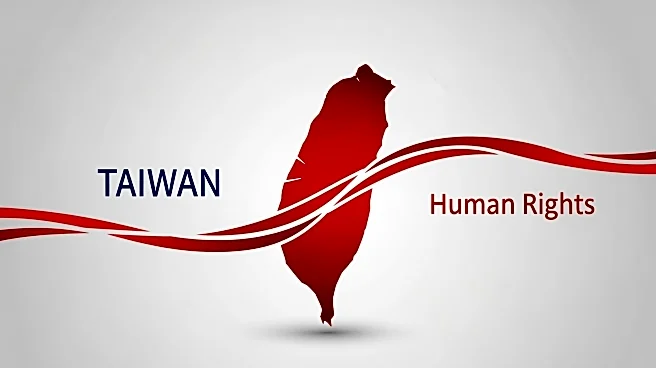What's Happening?
China has reiterated its stance on four critical 'red lines' that it urges the United States to avoid crossing to maintain stable relations. These red lines include Taiwan, democracy and human rights, political path and system, and the right to development.
This statement was made by China's ambassador to the U.S., Xie Feng, during a virtual address to American and Chinese businesspeople. The remarks follow a significant meeting between President Xi Jinping and President Trump, which aimed to de-escalate tensions between the two nations. The meeting, held on the sidelines of an international summit in South Korea, was the first since President Trump's return to the White House. Despite the high stakes, President Trump noted that Taiwan was not discussed during the meeting.
Why It's Important?
The reiteration of these 'red lines' by China underscores the ongoing sensitivity and potential for conflict in U.S.-China relations, particularly concerning Taiwan. The U.S.'s unofficial relationship with Taiwan has long been a point of contention for China, which views the self-governing island as part of its territory. The emphasis on these issues highlights the delicate balance required in diplomatic engagements between the two superpowers. The outcome of these discussions has significant implications for global economic stability, as both nations are major economic players. The business community, in particular, is closely watching these developments, given the potential impact on trade and economic policies.
What's Next?
Following the meeting, both countries have agreed to pause certain economic measures, such as the expansion of export controls on rare earth minerals by China and the blacklisting of Chinese firms by the U.S. This truce is seen as a positive step towards reducing economic tensions. However, the long-term resolution of these 'red lines' remains uncertain. Future diplomatic engagements will likely continue to address these sensitive issues, with potential reactions from political leaders and businesses influencing the direction of U.S.-China relations.
Beyond the Headlines
The emphasis on Taiwan and human rights as 'red lines' reflects broader geopolitical dynamics and the ideological differences between the U.S. and China. These issues are not only about bilateral relations but also about the global influence and the international order. The handling of these topics could set precedents for how other nations engage with China on similar issues, potentially affecting global diplomatic strategies.















